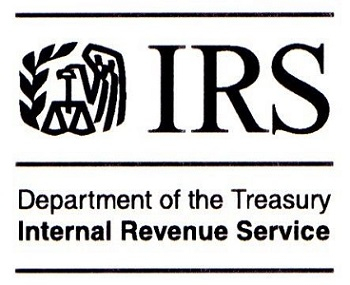BLOG
IRS Chief Counsel Advisory 201025049: are there implications for your 1031 exchange program?

Accruit is committed to closely monitoring the marketplace for factors that may have a potential impact on our clients and partners. The IRS recently issued a ruling that we believe is of interest to many companies with 1031 exchange programs, and we thought we'd take this opportunity to offer some details on that ruling.
It should be noted that this is not intended as tax advice - Accruit does not provide tax guidance. We do, however, encourage any business that thinks they may be affected to discuss the following information with their respective tax advisors. Accruit is glad to be involved, as appropriate, in those discussions.
The Ruling
On June 25, 2010 the Internal Revenue Service (IRS) National Office of the Chief Counsel released Chief Counsel Advisory (CCA) 201025049. In brief, this ruling reaffirms that depreciation deductions and like-kind exchange (LKE) treatment may not be allowed for equipment held primarily for sale.
It is of the utmost importance to note that this CCA is heavily dependent on a very specific set of facts and circumstances surrounding a single taxpayer employing LKEs as part of their overall tax planning strategy. Furthermore, under Title 26, section 6110(k)(3), CCA determinations are not to be used or cited as precedent. This said, published determinations like this CCA can provide important insight and guidance regarding specific issues.
It's also important to note that the phrase "property held primarily for sale" is not arbitrary. It appears throughout the Internal Revenue Code (IRC) and, as such, has undergone extensive litigation. Additionally, the Supreme Court has held under the definition of capital assets that "primarily" is defined as "of first importance" or "principally."
Ultimately, and despite the taxpayer's own designation of the equipment as primarily held for rental, the Chief Counsel determined the property was principally held for sale, with rental of secondary importance. (Note: the taxpayer in question is not an Accruit client.)
The following summarized facts serve to support the Chief Counsel's position:
- The taxpayer structured the sales of designated rental equipment as LKE transactions.
- Taxpayer's overall revenue structure consists of:
- equipment sales making up 91% of total income, and
- equipment rentals making up 9% of total income.
- Information provided to the IRS indicated that a substantial portion of the equipment designated as rental was sold prior to generating any rental income.
- The IRS Examination Division sampled a number of replacement properties received in LKE transactions and determined that many were disposed of shortly after purchase and none of the replacement properties were rented prior to disposition.
- Of all the replacement property purchased during Year 1, 40% was disposed of that same year.
- Nearly half of these dispositions occurred within 90 days of the replacement property's receipt by the taxpayer.
Implications
Under IRC section 1031(a), Qualified LKE sales are disposals of relinquished property defined as "held for productive use in a trade or business or for investment." Property that is held primarily for sale (inventory) is specifically disqualified from LKE treatment.
Does this ruling mean that companies with 1031 exchange programs should conduct a review? Perhaps. This depends on the details of the particular program. The CCA does highlight the importance of properly classifying and qualifying both relinquished and replacement property with respect to LKE eligibility, and it's always a good idea to make sure that a program remains in compliance with the guidelines established during implementation.
Accruit advises any company that believes it may be implicated by the Chief Counsel's reasoning to discuss with their tax advisor what steps should be taken (and documented) to help ensure that relinquished property is truly separate and distinct from those assets that are held exclusively or primarily for sale.
